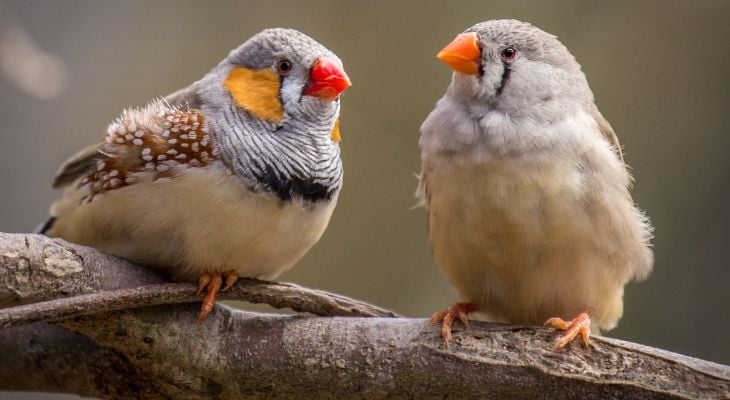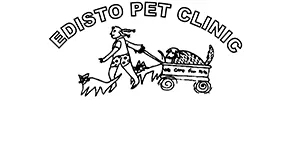
In general, finches have an expected lifespan of anywhere from 5-15 years. The wide range here can probably be attributed to species differences as well as an increased understanding of their husbandry, especially diet. Zebra finches are arguably the most popular bird species found in the North American pet trade. They are attractive birds, and the males are easily distinguished from the females. The males have black and white bars on the throat and breast, orange cheek patches and brown on the sides of the body. Both males and females have red-orange beaks, although the male's is much brighter in hue. The above description applies to the wild type coloration; a wide variety of color mutations are now available.
Cage Size
As mentioned above, the height of the cage is not as vital as having room to fly horizontally, so a long but shorter cage is acceptable. While experts vary in their recommended minimum size, it a good idea to get the largest cage you can. 30 inches long, by 18 inches high and 18 inches wide is a good sized cage for a pair of zebra finches. If you are going to get a larger group, you'll need an aviary or flight cage. This can be home built, but keep in mind that excellent hygiene is a must so any cage should be easy to clean. Wire spacing should be 1/4 inch to 1/2 inch.
Furnishing & Toys
Supply a variety of perches, but make sure the cage is not so cluttered that the finches cannot fly back and forth (keep an open flight path through the length of the cage). Also, use a couple of different sized dowels and try to add some natural branches as perches too, perhaps angling them to provide further variety so their feet are not always holding onto perches in exactly the same way. Small clip on perches can be used for some of the perches, and are nice since they do not span the whole cage and offer a little privacy in an aviary situation since only one or two finches can sit on one at a time. If possible, provide some plant cover at the perches to allow for privacy (also more important if keeping a group). You can use silk plants or non-toxic live plants. Swings and ladders can also be provided, although ladders are more likely to be used as perches than for climbing. Small bells or hanging toys can also be included, although finches are generally not very interested in toys.
Cage Placement
You'll want the finch cage in a quiet secure location in your home (although in warmer climates finches can be acclimated to outdoor aviaries). Avoid direct sunlight (overheating risk) as well draughts or being to close to heat or air conditioning ducts. Finches do not crave social interaction with people so unlike parrots do not need to be in a busy social part of the home, and in fact will probably be less stressed if kept in a quiet corner.
Water & Feed Dishes
Provide fresh drinking water daily. Some keepers prefer tube style water dispensers, while others use dishes either attached to the cage (with perches for access) or on the floor (place away from perches to reduce soiling with feces). Whichever you use, make sure there is always a supply of fresh clean water available, and clean water dished daily. Food dishes can also be placed on the floor (also not under perches, of course) or attached to the side of the cage. Again, these need to be cleaned daily.
Bath
A shallow dish of water should be provided several times a week for bathing. The water in the bath should be clean so remove the bath water as soon as it becomes soiled.
Lighting
Some people use full spectrum lighting for their finches. This is helpful especially in controlling molting and breeding behavior, but isn't strictly necessary for the average pet zebra finch.
Seeds
Feed a good quality finch seed mix, although this should never the the sole diet of your finches. Check that the seeds are fresh by sprouting them (put some in a plastic bag with a damp paper towel) - if they will not sprout then they are too old to feed. Millet sprays are a favorite treat of many finches but should be given sparingly, or the finches may develop a preference for millet.
Sprouted Seeds
This is an excellent way to boost nutrition as the seeds are at the peak of their nutritional value at sprouting. Ideally they should be fed just as they begin to sprout.
Greens & Fresh Foods
A variety of green should be provided, such as romaine lettuce, dandelion greens, kale, and spinach (in moderation), along with a variety of fresh vegetables and fruits (NO avocado, though). Experiment to find what they like and keep offering a variety as it may take your finches a few tries to accept new food items. Remember, though, that serving sizes of these foods should be small.
Pellets
These are excellent balanced diets and are nice to offer as part of a varied and balanced diet. Be sure to get a good quality pellet especially formulated for finches, and you may need to be persistent in offering pellets before your finches will try them if they are not used to eating them.
Eggfood
This is a supplement that is very important for breeding birds but that can be fed in moderation to non-breeders as well.
Cuttlebone & Grit
Some sort of calcium supplement is recommended and a cuttlebone is an easy way to add calcium to the diet, as are crushed oyster shells or even eggshells (heat thoroughly before crushing to prevent salmonella contamination). The role of grit is still highly debated. It is now quite widely accepted that parrots do not need grit, but the need for grit for finches and canaries is less clearly understood. Many avian vets now recommend no grit even for finches, as they do hull their seeds (grit is essential for doves and pigeons, for example, because they swallow seeds whole and need the grit to help hull the seeds). There seems to be a definite risk to overeating grit leading to impactions however, so this is something you should discuss with your avian veterinarian. If you do feed grit, only offer a few granules at a time and at infrequent intervals, especially mineralized grit.
